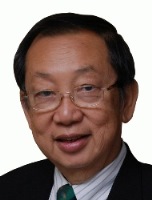
| Speaker | Dr. Toh Kin Woon (Research Fellow, The Penang Institute; Former State Executive Councilor (State Minister) for Education, Human Resource Development and Science, Technology and Innovation, Penang State, Malaysia) |
|---|---|
| Time | 17:00-19:00, Monday, 28th October, 2013 |
| Venue | Meeting Room 1A, 1st floor, GRIPS (Minato-ku, Tokyo) (7-22-1, Roppongi, Minato-ku, Tokyo)(Access) |
| Sponsor | GRIPS Innovation, Science and Technology Policy Program (GIST) |
| Language | English |
| Fee | Free (Pre-registraion required) |
| Document | Presentation Slides (51K) |
Penang, one of 13 states that make up the Federation of Malaysia, is among the more developed and industrialized of them. The core sector in its economic structure, one that generates the bulk of growth and provides most of the jobs, is the electronics and electrical machinery (E&E) sub-sector. To sustain its moderate to rapid growth rates, Penang needs to continue focusing on this key sub-sector. Up till now, Penang has built up immense manufacturing capabilities, especially in high-volume, low-mix and low-value-added operations, centering on assembly and testing in semi-conductors, disk drives, telecommunications equipment and computer accessories. However, enhanced global competitiveness, in particular the emergence of China, has witnessed the erosion and eclipse of Penang's competitiveness at this low end of E&E's value chain. Penang has thus to move up the value chain to low-volume, high-mix and high value-added operations, if it is to remain as a viable E&E hub. To succeed in this move, she needs to enhance her domestic technological capabilities in design & development (D&D) and research & development (R&D). Already, some such capabilities have been developed through intra-firm relocation of some multinational corporations' (MNCs) design activities to their branches (subsidiaries) in Penang. Another key source of capability development is the successful promotion of E&E clusters through outsourcing and sub-contracting by these MNCs to local small and medium industries (SMIs), thereby spawning many entrepreneurial firms among them. The problem faced by Penang, however, is that while it is strong in production, which is one of three elements in the capability triad, it is weak in the other two elements i.e. skills formation and the capability to create new entrepreneurial firms defined as firms with design and new product development capabilities. There is a slow down in the development of innovation capability and hence value creation in Penang. Huge competency gaps still exist, awaiting to be closed. In response, several measures have been designed and undertaken to overcome these gaps. These include, among others, the granting of appropriate incentives for the development of design and research capabilities, the setting up of shared services for extensive prototype and product testing, establishing an industry-relevant educational infrastructure and promoting an industry cluster development framework to stimulate the growth of complementary industries. The effectiveness of these has, however, been hampered by a declining standard of educational attainment, brain drain and increasingly weak and poor institutional support. In short, the country's technological and innovation efforts and their constraints will be the main focus of my talk.
 grips.ac.jp. Registration email must include:
grips.ac.jp. Registration email must include: